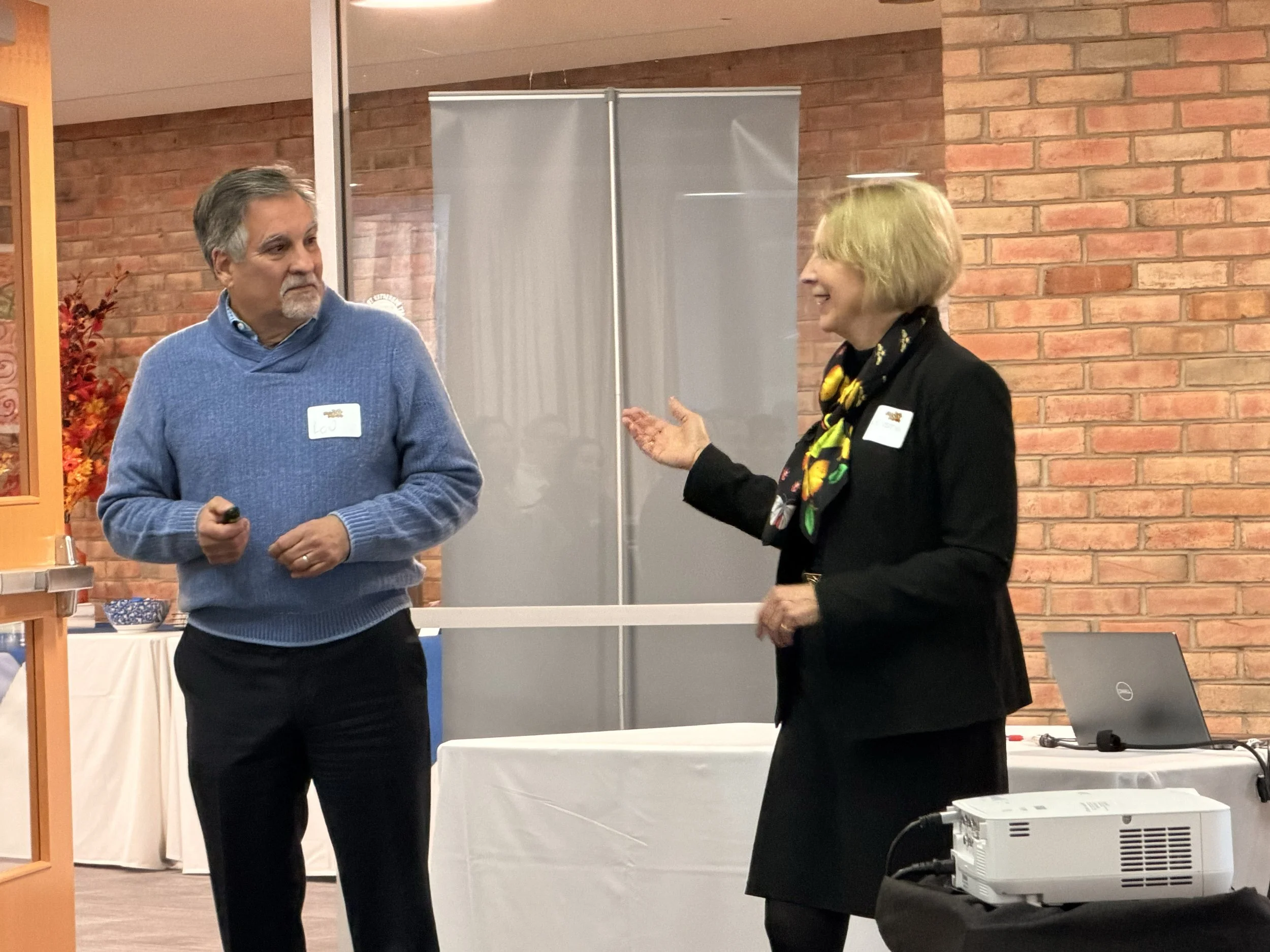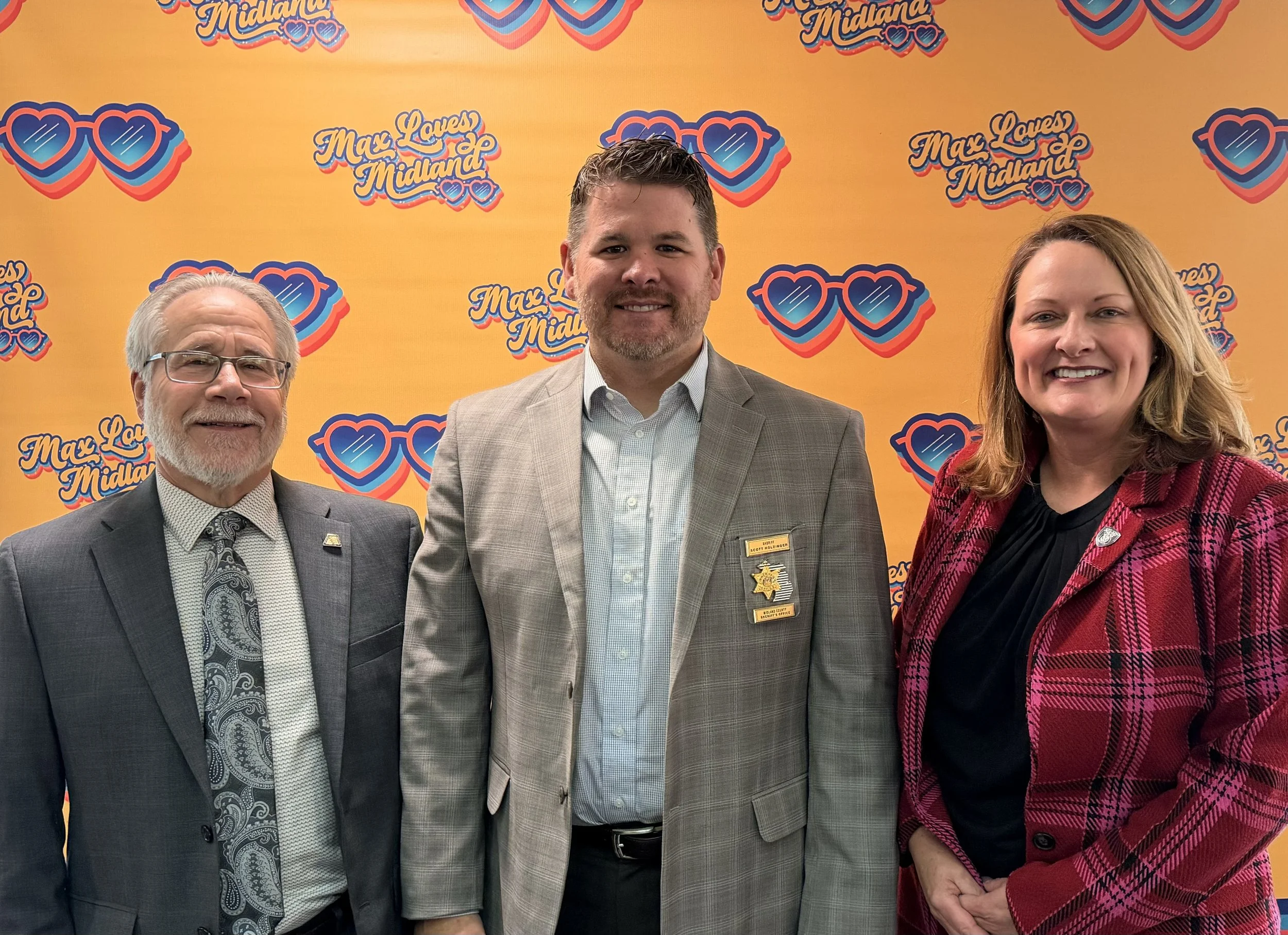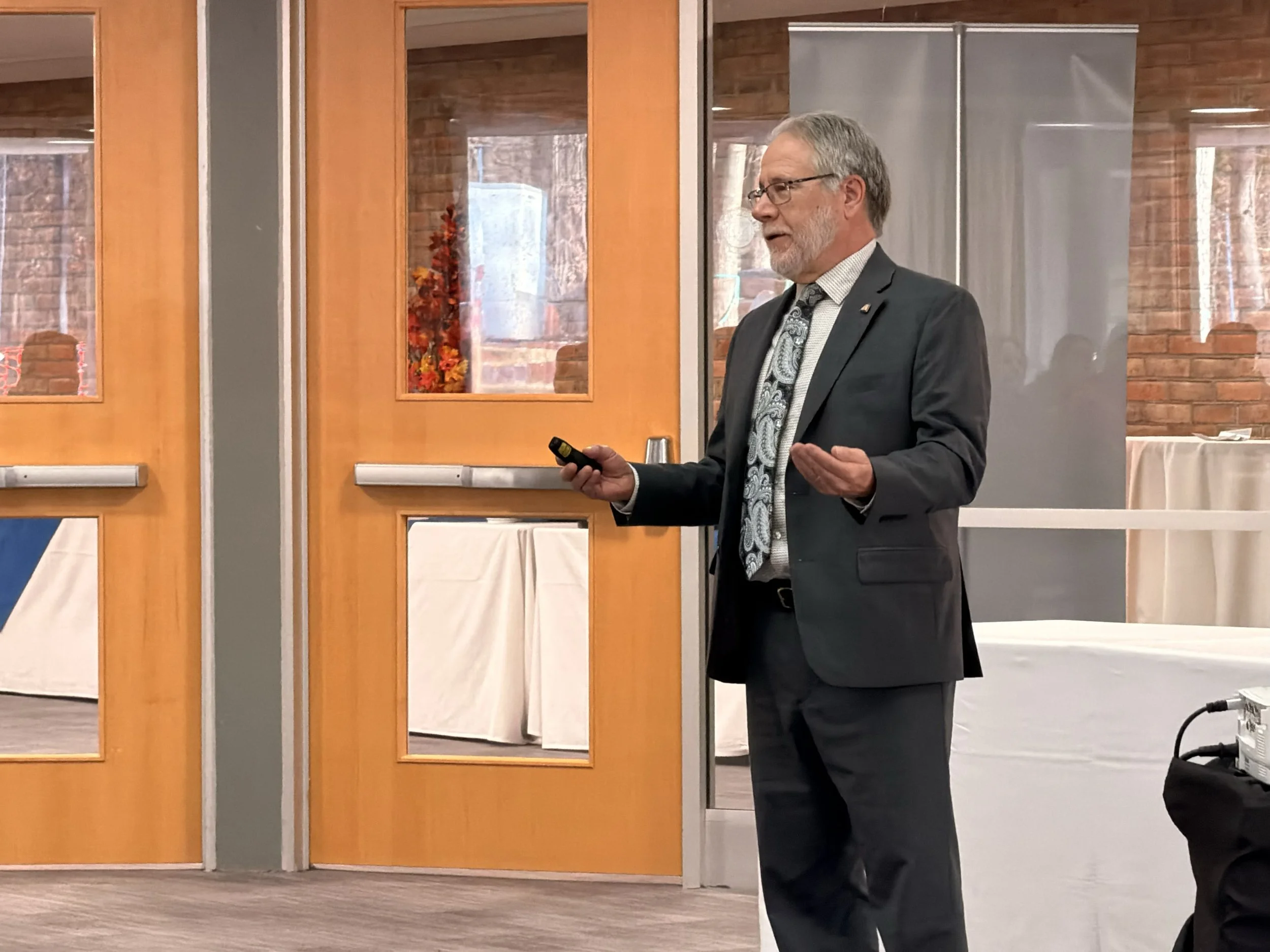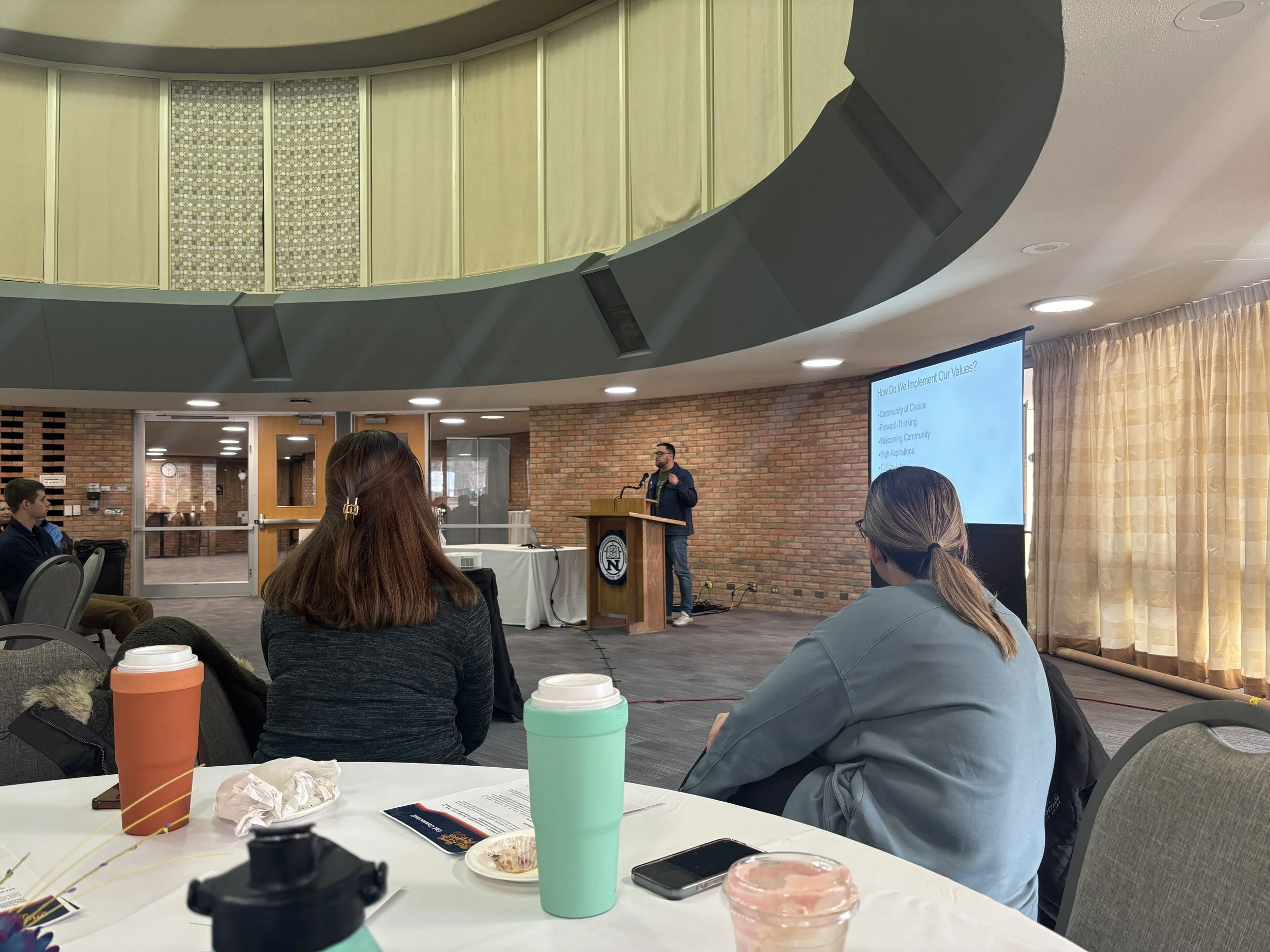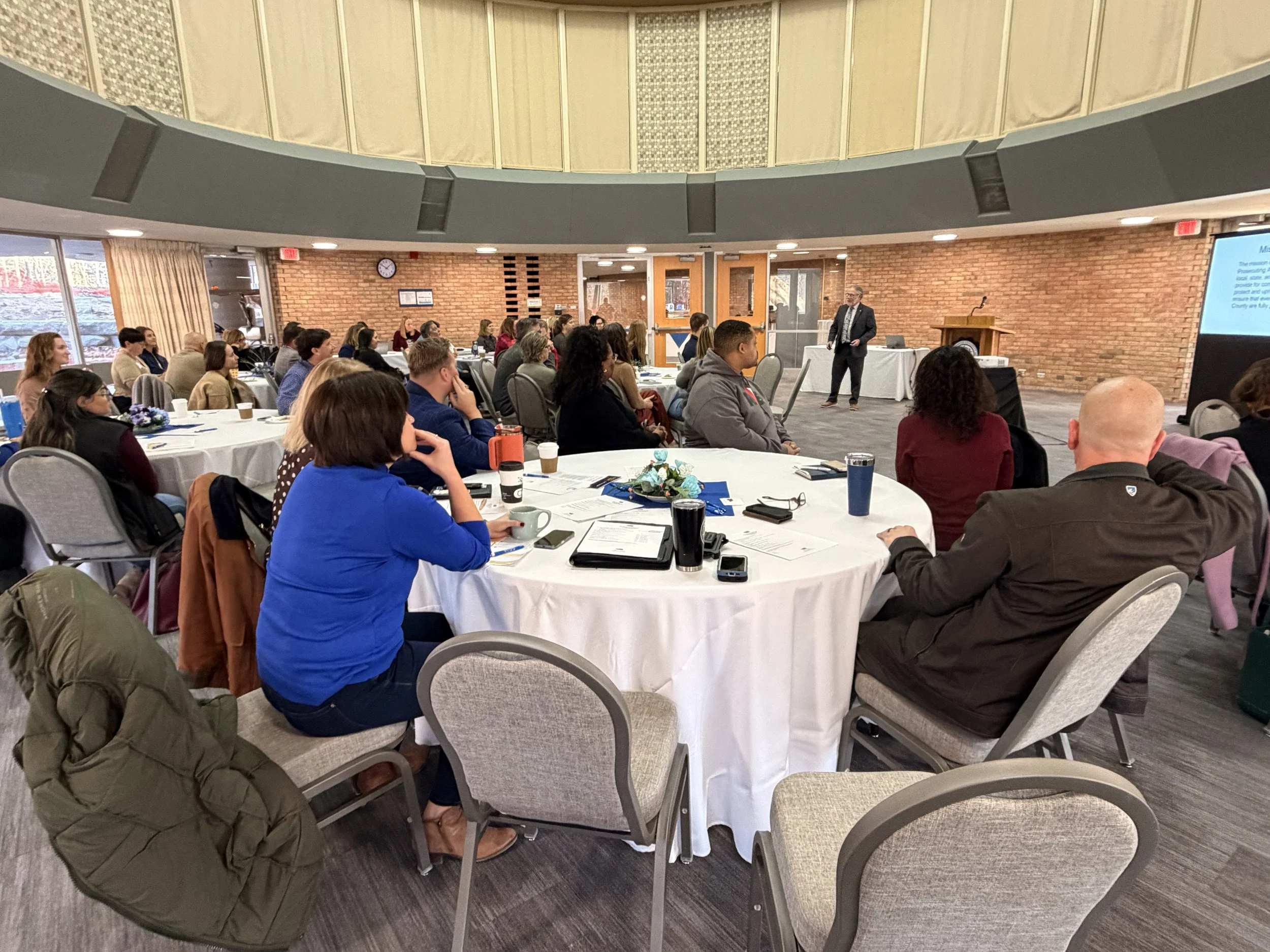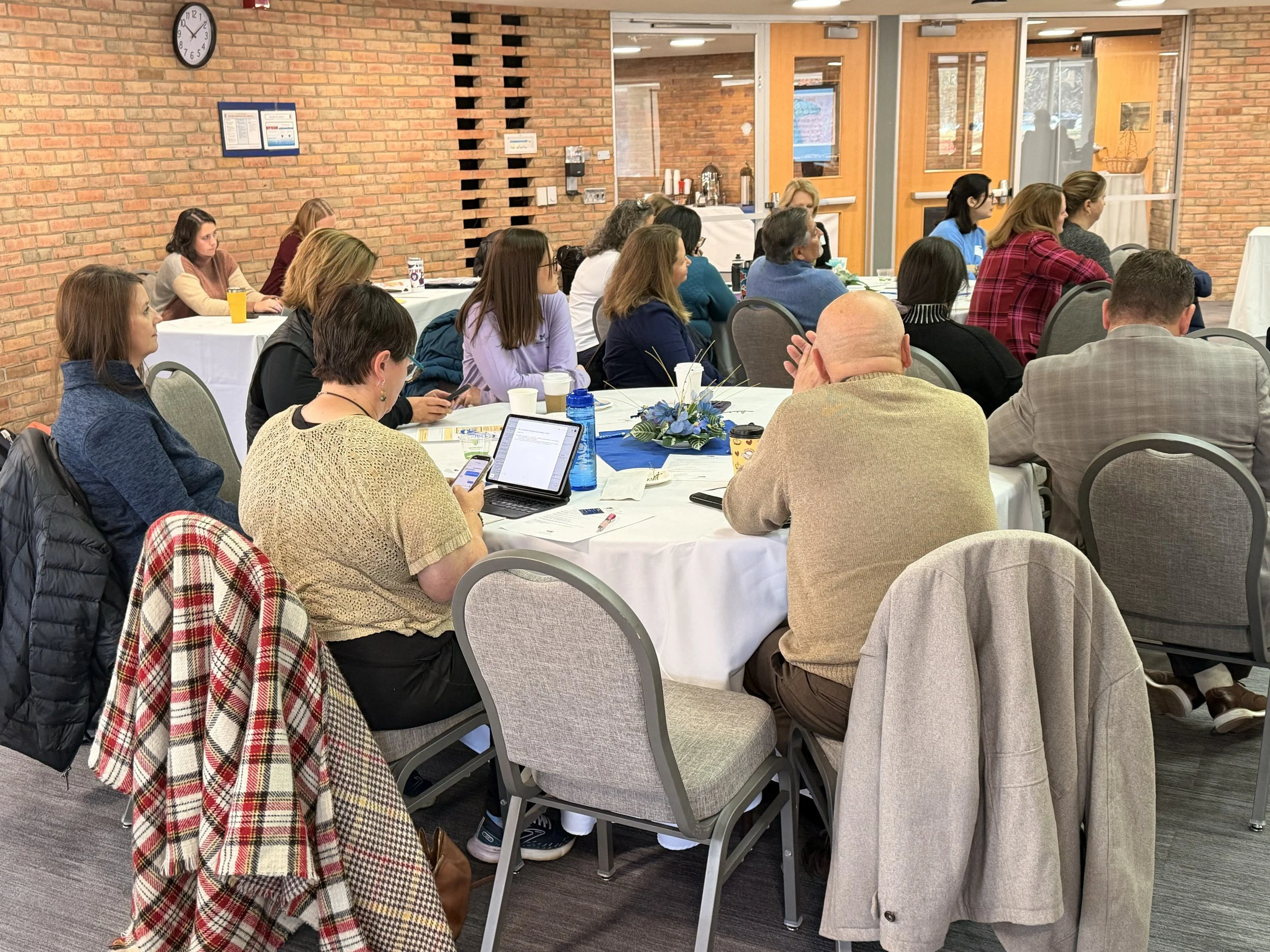Navigation Team Meeting Recap: Law Enforcement in Midland County
The Max Loves Midland Navigation Team gathered on November 14 for a deep look into law enforcement in Midland County. Sharon Mortensen and Kathy Snyder opened the morning by welcoming attendees, revisiting the Midland County Vision Statement, and inviting participants to introduce themselves at their tables.
Lou Mencia and Dr. Kristin Stehouwer provided an update on the Community Success Panel and its connection to Max Loves Midland. They explained how the Community Success Panel works to align local leaders and organizations, and how the Communities of Excellence framework has helped shape Midland’s collaborative approach. They shared the idea of “Collaboraction,” reflecting the combined focus on learning, partnering, and taking meaningful action. With this meeting centered on Caring for Our People, the stage was set for a series of presentations on law enforcement and public safety.
Chief Nicole Ford of the City of Midland Police Department gave an overview of the department’s structure, areas of specialization, and commitment to community-centered policing. The department includes 51 full-time employees and 18 part-time crossing guards. Officers serve in roles that range from detectives and school resource officers to community relations and specialized teams such as SWAT, crash investigation, and rescue and recovery diving. Chief Ford highlighted recent additions including the Midland AIR drone team and the acquisition of a critical incident response vehicle. She also shared information about the VirTra virtual training system, which provides immersive, scenario-based instruction for officers and regional partners. A key component of their work is the Crisis Intervention Team, which brings together law enforcement, mental health professionals, veteran representatives, and community advocates to support individuals experiencing active mental health crises. Chief Ford encouraged residents to lock up valuables, call 911 when safety assistance is needed, and continue building strong connections with local officers.
Midland County Sheriff Scott Holzinger followed with a presentation about the role of the Sheriff’s Office and how it differs from the police department. The Sheriff’s Office is an elected position and carries additional responsibilities, including management of the county jail. Sheriff Holzinger described the mission, vision, and values of the department, emphasizing professionalism, accountability, and service to the community. The county jail houses an average of 180 inmates and includes individuals held under local, state, and federal authority. One of the most significant upcoming developments is the creation of a recovery pod within the jail, the first of its kind in Michigan. This dedicated unit will focus on substance use recovery and provide structured support to help individuals pursue long-term stability. The Sheriff also highlighted the work of school resource officers, animal control, and the Victim’s Service Unit, which is staffed by trained volunteers who support families during unexpected death investigations.
J. Dee Brooks, Midland County Prosecuting Attorney, spoke about the responsibilities of his office, which include criminal prosecution, juvenile cases, abuse and neglect petitions, paternity and child support, and victims’ rights. He emphasized the importance of fairness, collaboration, and the community’s willingness to participate in the justice system. Midland County has been recognized as a leader in alternative sentencing programs, including recovery court and mental health court. Brooks also shared insights on trends such as declining alcohol-related offenses and rising drug-related cases. Programs such as canine advocacy, the Vulnerable Adult Network, and the DEI Commission reflect the office’s commitment to both justice and compassion. He reminded attendees that community members can help by reporting concerns, responding to subpoenas, serving on juries, and supporting those who face significant personal challenges such as substance use or mental health issues.
Kevin LaDuke closed the speaker portion with an update on Max Loves Midland. He shared the origins of Max, which grew out of the Communities of Excellence process and the need for a stronger mechanism to connect the work of the Community Success Panel with the broader community. Kevin highlighted milestones from the year, including significant growth in website traffic, nearly six thousand community events submitted to the calendar, continued success of the Max Loves Midland Show, and strong local engagement with stories and resources. Upcoming plans include new partnerships, expanded content, AI-supported tools, and future enhancements designed to help every resident feel connected to the county.
The meeting concluded with a reminder about the community-wide Assets Across the Lifespan surveys launching on November 25. These surveys will gather data from working adults and older adults in order to better understand the strengths, needs, and protective factors across all stages of life in Midland County. Attendees were encouraged to take the surveys themselves and help share them widely.
The next Max Navigation Team meeting will take place on February 13, 2026, at Northwood University. As always, participants are invited to stay engaged by submitting community events, sharing stories, joining the newsletter, and offering feedback that helps strengthen the Max Loves Midland platform.
Do you have a Midland County story you would like to tell that aligns with our vision?



